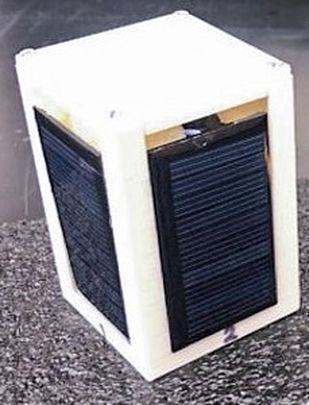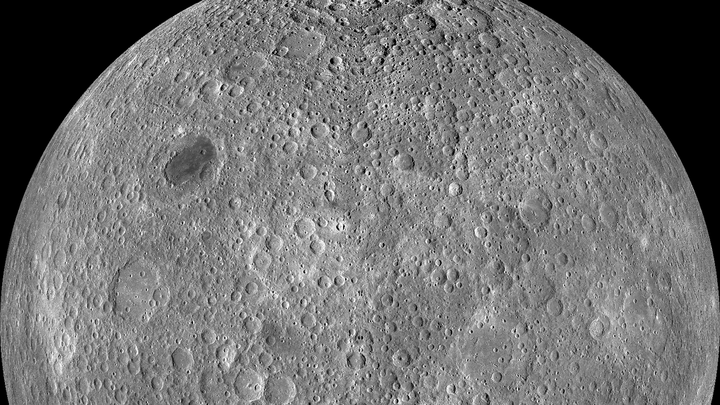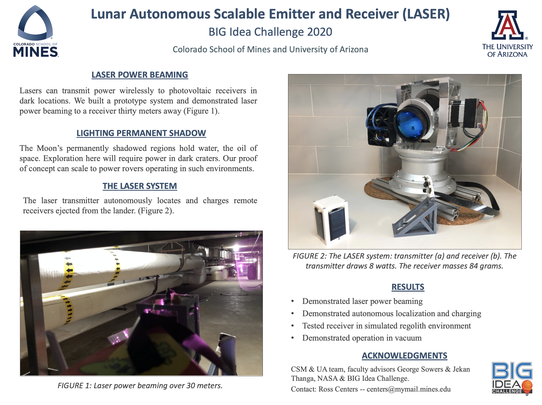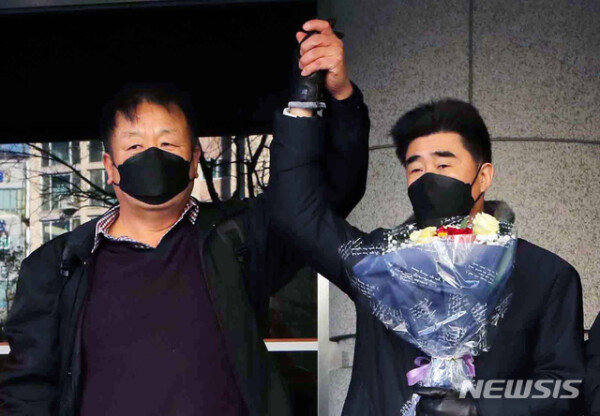Álvaro Díaz-Flores and José Fernández Moreno, students of the Master’s Degree in Aeronautical Engineering (MUIA) of the Polytechnic University of Madrid (UPM) were enjoying an international mobility experience in the United States in the 2019/2020 academic year, under the ETSIAE-University of Arizona Double Diploma agreement, when they were presented with the opportunity to participate in the contest BIG Idea Challenge de la NASA.
–
This annual competition of the US space agency, involves the university community to present proposals for new technological instruments that study the dark regions of the moon.
Álvaro and José were part of the Space TREx Laboratory (Space and Terrestrial Robotic Exploration), directed by Jekan Thanga, an expert in exploration and use of space, who in turn acted as a tutor for the Master’s Final Project of the students of the ETS of Aeronautical and Space Engineering (ETSIAE).
Two students from #ETSIAE, finalists in NASA’s BIG Idea Challenge with a project of #FemtoSat in collaboration with the Colorado School of Mines and the University of Arizona, where they were pursuing a Double Diploma.
????https://t.co/YI5iIBMQzI#somosUPM #international mobility #MUIA pic.twitter.com/6jtYLVGhzH– ETSIAE – UPM (@aeroespacialUPM) February 5, 2021
“After passing the preliminary test the University of Colorado contacted our tutor to design and build a FemtoSat (satellite with a mass less than 100 grams) that could work at the Moon’s poles to demonstrate that by laser and solar panels they were capable of charging a battery. The shadow regions of the Moon contain water and exploring them will require energy in the dark craters, ”explains Álvaro.
They have been in charge of the conceptual and preliminary (theoretical) design of the FemtoSat, called LASER (Lunar Autonomous Scalable Emitter and Receiver) System. “The FemtoSat is only 6cm tall.
A satellite in the middle of the pandemic
The first phase of design and development coincided with the first wave of the pandemic, so they had to make the satellite working from home. “We couldn’t access the laboratory instruments that would have provided us with many of the tests.

–
The assembly part had to be carried out by other colleagues from the laboratory, since Álvaro and José had to return to spain having finished the Master. But the final culmination of the project was the online presentation in the final of the competition on January 7, 2021.
Two well-prepared students
“We surprised ourselves to see how we made use of the knowledge acquired in multiple subjects during the Degree in Aerospace Engineering and especially the first year of the master’s degree that we are studying at ETSIAE. We were able to move forward between two persons a design that in the United States normally develops between six or seven “, affirm the students of ETSIAE.

–
To become a finalist for the BIG Idea Challenge 2020 required testing and providing results to support a strong proof of concept. The LASER project has shown laser energy emission at 30 meters distance and autonomous detection of targets, as well as impact survival test of the FemtoSat during deployment on the lunar surface.
Financing obtained
In their conclusions they include that the proposed proof of concept can be extended to supply power to vehicles operating in these environments by scaling up power and range.

–
They have not obtained the award for the best project, but they did better collaboration (by the Colorado-Arizona tandem) and the fact of being one of the eight finalists, has allowed them to obtain a great financing for continuousr working on its development.
Find a job and keep studying
José’s TFM consisted of designing a subsystem of a satellite to avoid space junk. The University of Arizona began patenting it, but due to the pandemic, we were only able to carry out the preliminary design and the project is currently on hold.
“This has meant that it is now in Active job search, although I understand that the aerospace sector is not in its best moment ”, he reflects. For his part, Álvaro is now continuing his studies in Arizona, with a Ph.D. “This project has opened the door for me to do the doctorate in a fully financed manner ”, he concludes.
– .


